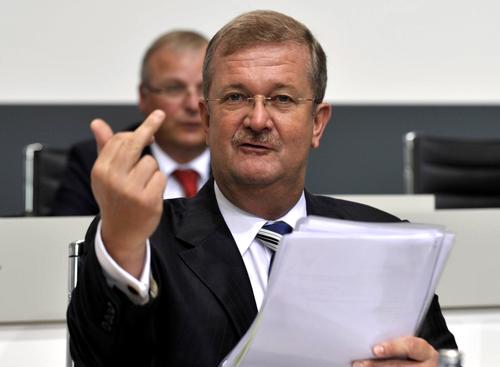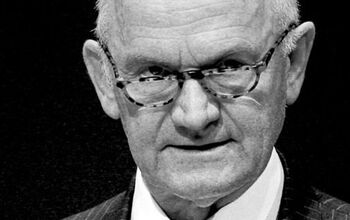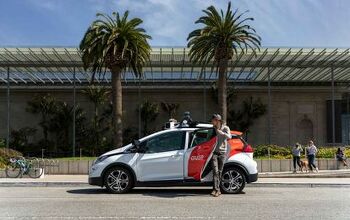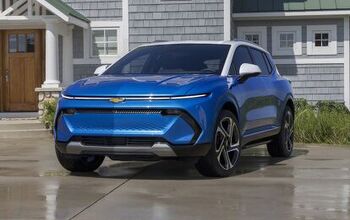Editorial: Ferdinand Piech: The Godfather, Part 2
A man who doesn’t spend time with his family can never be a real man. Piech certainly spends a lot of time with his family; however, they‘re seldom good times. It has been a long tradition for the Piech and the Porsche side of the family to fight each other and the power struggle over at Volkswagen is merely an extension of that.
For a long time, it looked like Piech would be the loser in Porsche’s Volkswagen takeover. Since the 1980s, the Porsche part of the family held a majority stake in their car company. Back then, Piech‘s brother—in complete secrecy—sold his shares in Porsche to Arab investors (after getting into financial troubles because of some dubious real estate deals). This was a sacrilege! No outside party should get their hands on the family business!
When Piech found out about it, he cried, “I know it was you, Fredo. You broke my heart,“ or something to that effect, and called for a family meeting. The family decided to buy back the lost stake instantly in a combined effort. As a result, the Porsche family ended up with half of the shares that formerly belonged to Piech‘s brother.
With Porsche ruling Volkswagen and Piech not being in control of Porsche, he would ultimately have to answer to Wendelin Wiedeking, something that is unacceptable to someone with Piech‘s ego.
Piech hates Wiedeking with a passion. Piech considers Wiedeking an outsider, the hired help, an employee who holds far too much power. If it had been up to him, Wiedeking would have lost his job a long time ago. Unfortunately for Piech, Wiedeking is the protégé of Wolfgang Porsche, Piech‘s cousin and the new strong man of the Porsche family. In Piech‘s eyes, Wolfgang isn‘t even in his class, merely one of these MBA types who don‘t know anything about cars. And so, while everybody thought that he had finally been beaten, Piech did what he does best: Pulling the strings.
For a long time, he adhered to Vito Corleone’s advice to keep your friends close but your enemies closer. That changed in September of 2008. Piech dealt the decisive blow to his cousin Wolfgang and his man Wiedeking. An important vote took place in Wolfsburg: The supervisory council of Volkswagen had to decide whether Porsche could deal with Audi directly, or whether it had to be consulted every single time.
According to German law, unions and shareholders each control half of the supervisory board. In case of a deadlock, the vote of the chairman, who‘s appointed by the shareholders, counts twice. The unions have been protesting against Porsche for quite some time, so it came to nobody‘s surprise that they didn‘t support Porsche, which meant that Piech had the decisive vote. But somehow, he went missing. In his absence, Piech‘s proxy abstained from voting and Porsche lost the vote. On top of that, Porsche lost another crucial vote that day that could have put an end to the “Volkswagen-Law“ which gives the federal government a blocking minority. This also meant that Porsche could not possibly get their hands on Volkswagen‘s cash reserves in order to reduce their debt. Wolfgang Porsche was furious. “I am appalled by the voting behavior of the chairman,“ he told the press.
With the global economic meltdown hitting the auto industry, Porsche got into even deeper trouble, since the banks refused to prolong the cheap credit Porsche needed so dearly. So the family was forced to adjust their strategy. Instead of taking over Volkswagen, they are now working on a merger. And guess who‘s calling the shots.
Piech made it clear that Porsche will be just another brand in the Volkswagen empire, that headquarters will remain in Wolfsburg and that his man Martin Winterkorn will be CEO.
Like many unfortunate souls before him, Wendelin Wiedeking had to learn the hard way that you don‘t mess with Piech. When asked whether Wiedeking had a future in the new Volkswagen/Porsche alliance, Piech answered: “He would have to take several steps down the ladder. The role play would have to change from someone who‘s used to march through to someone with humbleness—I don‘t know.“
He couldn‘t have been clearer.
Don Piech is about to fulfill his life dream: To forge an automotive giant that builds everything from big commercial trucks to luxurious sports cars to tiny econoboxes controlled by the family. And most importantly, instead of Wolfgang Porsche and his guys in Stuttgart, it is now Ferdinand Piech and his guys in Wolfsburg who have the upper hand.
More by Thomas Minzenmay
Latest Car Reviews
Read moreLatest Product Reviews
Read moreRecent Comments
- Dwford I don't think price is the real issue. Plenty of people buy $40-50k gas vehicles every year. It's the functionality. People are worried about range and the ability to easily and quickly recharge. Also, if you want to buy an EV these days, you are mostly limited to midsize 5 passenger crossovers. How about some body style variety??
- SCE to AUX The nose went from terrible to weird.
- Chris P Bacon I'm not a fan of either, but if I had to choose, it would be the RAV. It's built for the long run with a NA engine and an 8 speed transmission. The Honda with a turbo and CVT might still last as long, but maintenance is going to cost more to get to 200000 miles for sure. The Honda is built for the first owner to lease and give back in 36 months. The Toyota is built to own and pass down.
- Dwford Ford's management change their plans like they change their underwear. Where were all the prototypes of the larger EVs that were supposed to come out next year? Or for the next gen EV truck? Nowhere to be seen. Now those vaporware models are on the back burner to pursue cheaper models. Yeah, ok.
- Wjtinfwb My comment about "missing the mark" was directed at, of the mentioned cars, none created huge demand or excitement once they were introduced. All three had some cool aspects; Thunderbird was pretty good exterior, let down by the Lincoln LS dash and the fairly weak 3.9L V8 at launch. The Prowler was super cool and unique, only the little nerf bumpers spoiled the exterior and of course the V6 was a huge letdown. SSR had the beans, but in my opinion was spoiled by the tonneau cover over the bed. Remove the cover, finish the bed with some teak or walnut and I think it could have been more appealing. All three were targeting a very small market (expensive 2-seaters without a prestige badge) which probably contributed. The PT Cruiser succeeded in this space by being both more practical and cheap. Of the three, I'd still like to have a Thunderbird in my garage in a classic color like the silver/green metallic offered in the later years.


































Comments
Join the conversation
Hello Guys, for those interested I post a story of DER SPIEGEL, Germany's leading news magazine. It's in my opinion among the best articles of The Porsche-VW saga to date: http://www.spiegel.de/international/business/0,1518,637243,00.html But, of course, your editorial is also a great piece of art, Mr. Minzenmay
The sources cited in the Wikipedia article to substantiate the big assertion that Porsche copied Tatra were listed as one source: a book called "Car Wars: Fifty years of Greed, Treachery and Sculduggery" by Jonanthan Mantle. Mantle had been noted at that point in his career for his biography of the Benetton family and his unauthorized biography of... Andrew Lloyd Weber. The book itself is noted for its fairly shoddy journalistic standards, with many glaring factual errors and hugely thin sourcing. But because of its sensation nature, the assertions have been widely copied... not verified, just copied. When reading a Wikipedia article, its the reader's responsibility to verify the sources of the information. Wikipedia is intended as a channel for verifiable information. Any information that is unsourced or poorly sourced is suspect... like the big notion that the VW Beetle was largely copied from Tatra. Forgetting that Ferdinand Porsche had been shopping his idea for a rear-engined, air-cooled people's car for decades before Hitler, before Volkswagen.